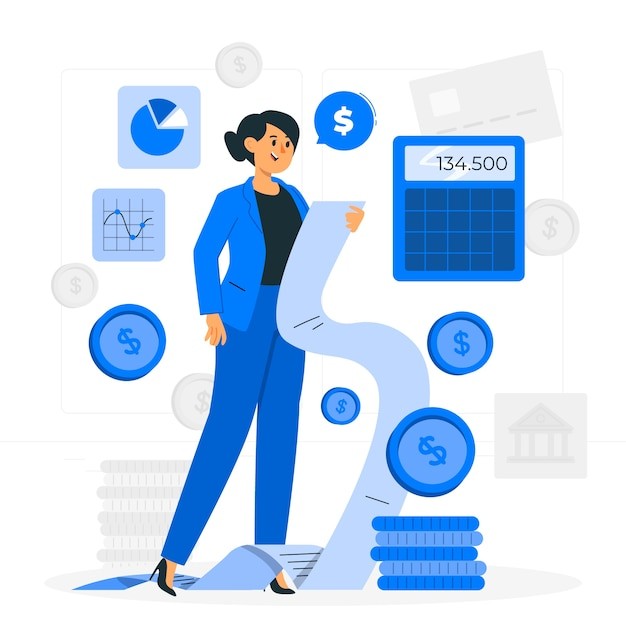Are you struggling to stretch your monthly income until the next payday? Many people find themselves in this situation, juggling essential expenses while trying to build a safety net. Fortunately, small changes can make a big difference. From creating a contingency fund to using an Albert app cash advance, smart financial strategies can reduce stress.
This guide covers effective budgeting, handling unexpected expenses, and simple methods to boost financial security. Let’s explore real solutions that help you break the cycle of living paycheck to paycheck without making drastic lifestyle changes.
Understanding the Paycheck-to-Paycheck Cycle
Most households live paycheck to paycheck, meaning every dollar from their monthly income goes directly toward expenses. The Federal Reserve reported that 37% of Americans don’t have enough savings to cover a $400 emergency. This situation creates a constant financial strain, leaving little room for debt repayment, savings goals, or long-term stability.
Main Causes of Living Paycheck to Paycheck:
- High fixed expenses such as rent, utilities, and groceries
- Card debt with high interest rates
- Lack of budgeting tools to track spending habits
- Emergency cash needs due to unexpected expenditures
- No savings account or contingency fund for financial security
Breaking free from this cycle starts with effective budgeting, smarter spending, and exploring ways to access immediate cash advances during tight months.
- Create a Realistic Budget Based on Your Income
One of the most effective ways to manage money is to budget on a tight income. A well-structured plan helps control spending habits and prioritize essential expenses.
Zero-Based Budgeting Approach:
This method ensures every dollar is assigned a purpose. If your monthly income is $3,000, every expense—rent, utilities, food, and savings—is planned to total that amount, leaving no untracked spending. Budgeting tools like Klover Cash Advance can help automate this process.
- Build an Emergency Fund, Even on a Tight Budget
Many people believe saving is impossible when money is tight, but even small contributions add up. A solid emergency fund can prevent the need to borrow money when surprise costs arise.
How to Start Saving:
- Set a goal of at least $500, to begin with
- Automate transfers to a dedicated savings account
- Use cash-back apps or rewards from a credit card to grow savings
- Deposit any extra income from side gigs
Even if saving is difficult, putting away just $10 per week adds up to over $500 a year.
- Find Immediate Cash Solutions for Emergencies
Waiting for your next paycheck isn’t always an option when unexpected expenditures arise. Options like a cash advance or a no-credit-check loan can provide short-term relief.
Fast Cash Options to Consider:
- Instant cash advance services with low fees
- Fast cash online from reputable lenders
- Credit card cash loan as a last resort
Avoid borrowing from high-interest lenders, as the debt can quickly become unmanageable.
- Reduce Debt Payments Without Hurting Your Budget Money
High-interest credit card debt and debt repayments can drain your income. Reducing these obligations frees up more cash for savings.
Steps to Lower Debt Faster:
- Pay off high-interest debts first
- Consolidate loans for lower interest rates
- Transfer balances to a lower-interest bank account credit card
Even paying an extra $50 toward your monthly debt can save hundreds in interest.
- Cut Fixed Expenses and Cancel Unnecessary Subscriptions
Many people spend money on things they don’t even use. Trimming these costs can free up more money each month.
Ways to Reduce Fixed Expenses:
- Cancel unnecessary subscriptions like unused streaming services
- Switch to a lower-cost phone plan
- Shop for cheaper insurance rates
- Increase Income Streams for Financial Stability
Relying on a single paycheck makes it hard to stay ahead. Adding even a small extra income can provide breathing room.
Ways to Earn Quick Money Today:
- Sell unused items online for quick money today
- Take up freelance work in your free time
- Use apps that pay for small tasks
Even $200 extra per month can make budgeting easier.

Plan for Future Financial Security
Long-term financial stability requires more than short-term fixes. Preparing for the future includes retirement savings, investments, and an emergency fund.
Smart Future Planning Strategies:
- Open a separate savings account for retirement
- Start a small investment plan, even with just $50 per month
- Learn about financial planning through reliable sources, like this guide on investing wisely
Comparison of Quick Money Options
|
Option |
Time to Receive Money |
Best for |
Risks |
|
Instant Cash Advance |
Within minutes |
Emergency bills |
Fees apply |
|
No Credit Check Loan |
24-48 hours |
People with low credit scores |
High interest |
|
Fast Cash Online |
Within a day |
Small short-term expenses |
Scams exist |
|
Borrowing from Friends |
Varies |
No-interest short-term relief |
Relationship strain |
|
Side Gig Income |
Weekly |
Long-term financial flexibility |
Requires effort |
Final Words
Managing money when living paycheck to paycheck requires smart planning. Reducing credit card debt, using budgeting tools, building an emergency fund, and exploring immediate cash advances are all effective ways to save money and regain financial control. With consistent effort, achieving financial security becomes possible.
FAQs
- How much should I save for an emergency fund?
A good starting point is $500 to $1,000. Over time, aim for three to six months’ worth of expenses. Even small contributions, like saving $20 per paycheck, help build a safety net.
- What’s the fastest way to get emergency cash?
Options include an instant cash advance, a fast online loan, or selling unwanted items. Services like this savings strategy also offer great financial insights.
- How can I budget better on a tight income?
Using a zero-based budget, cutting non-essential expenses, and finding ways to earn more can help. Apps like these financial planning tools can also simplify budgeting.
Read more lifestyle articles at ClichéMag.com
Images provided by Deposit Photos, BingAI, Adobe Stock, Unsplash, Pexels, & Pixabay




